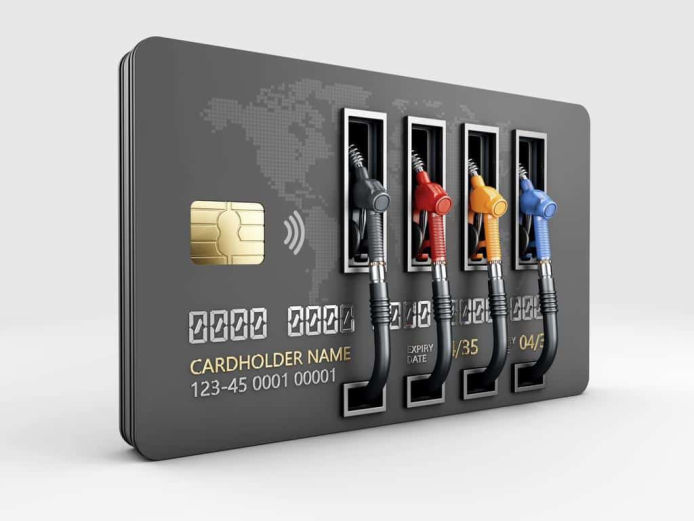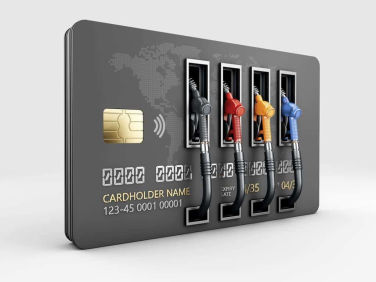Preventing Fuel Theft and Misuse with Fleet Fuel Cards
The adoption of fleet fuel cards introduces several mechanisms that help deter and detect fuel theft and misuse:
Detailed Transaction Monitoring
Fleet fuel cards capture comprehensive data for each transaction, including the date, time, location, fuel type, and amount purchased. This level of detail enables fleet managers to scrutinize fuel usage patterns and identify any anomalies that may indicate fraudulent activities. For instance, if a vehicle's fuel consumption suddenly spikes without a corresponding increase in mileage, it could signal potential siphoning or unauthorized use.
Customized Purchase Controls
Businesses can set specific purchase controls on fleet fuel cards to limit spending and reduce the risk of misuse. These controls can restrict transactions based on:
• Fuel Type: Ensuring that only authorized fuel types are purchased.
• Transaction Amounts: Capping the amount spent per transaction or per day.
• Geographical Locations: Limiting purchases to certain regions or approved fuel stations.
• Time of Day: Restricting fuel purchases to specific hours aligned with business operations.
By tailoring these controls, companies can significantly reduce the likelihood of unauthorized expenditures.
Driver Identification Numbers (PINs)
Assigning unique Personal Identification Numbers (PINs) to each driver adds an extra layer of security. Drivers must input their PIN at the point of sale to complete a transaction, ensuring that only authorized personnel can use the fleet fuel cards. This measure not only deters unauthorized use but also holds drivers accountable for their fuel purchases.
Real-Time Alerts and Reporting
Advanced fleet fuel card systems offer real-time monitoring and can generate alerts for suspicious activities. For example, if a fuel purchase exceeds a preset limit or occurs outside of authorized hours, the system can immediately notify fleet managers. This prompt notification allows for swift investigation and action, minimizing potential losses.
Integration with Telematics and GPS Tracking
Some fleet fuel card programs integrate with telematics and GPS tracking systems, providing a holistic view of vehicle activity. By correlating fuel purchase data with vehicle location and usage patterns, businesses can detect discrepancies that may indicate fuel theft or misuse. For instance, if a fuel purchase is recorded in one location but the vehicle's GPS data shows it was elsewhere, this could be a red flag warranting further investigation.
Case Study: Sunoco Fleet Fuel Cards
Sunoco offers fleet fuel cards designed to help businesses manage fuel expenses while preventing theft and misuse. Key features of Sunoco's fleet fuel cards include:
• Savings at the Pump: Businesses can save up to 6¢ per gallon at over 5,000 Sunoco locations, providing direct cost reductions on fuel expenditures.
• Comprehensive Expense Tracking: Detailed transaction data allows businesses to monitor who spends what, where, and when, facilitating the identification of any irregularities.
• Flexible Purchase Controls: Companies can set spending limits by driver or card, control usage by location, amount, time of day, and more, thereby reducing the risk of unauthorized purchases.
• Driver PINs for Enhanced Security: Each driver is assigned a unique PIN, adding a layer of security and accountability to every transaction.
• Mobile Account Management: The Fleet SmartHub mobile app enables fleet managers to access account information on the go, look up Driver IDs, view transactions, make payments, and cancel lost or stolen cards promptly.
Implementing Fleet Fuel Cards: Best Practices
To maximize the benefits of fleet fuel cards in preventing fuel theft and misuse, businesses should consider the following best practices:
Establish Clear Policies and Procedures
Develop and communicate clear guidelines regarding the use of fleet fuel cards. Ensure that all drivers understand the policies, including the consequences of misuse.
Regularly Review Transaction Reports
Consistently monitor transaction reports to identify and address any suspicious activities promptly. Regular reviews help in maintaining oversight and deterring potential fraud.
Leverage Technology Integration
Integrate fleet fuel card data with telematics and GPS tracking systems to gain a comprehensive understanding of vehicle and fuel usage patterns. This integration enhances the ability to detect and prevent unauthorized activities.
Provide Ongoing Training
Offer regular training sessions for drivers and fleet managers on the proper use of fleet fuel cards and the importance of adhering to established policies. Continuous education fosters a culture of accountability and vigilance.
Act Swiftly on Alerts
Respond promptly to any alerts or notifications of suspicious activities. Immediate action can prevent further unauthorized use and mitigate potential losses.

